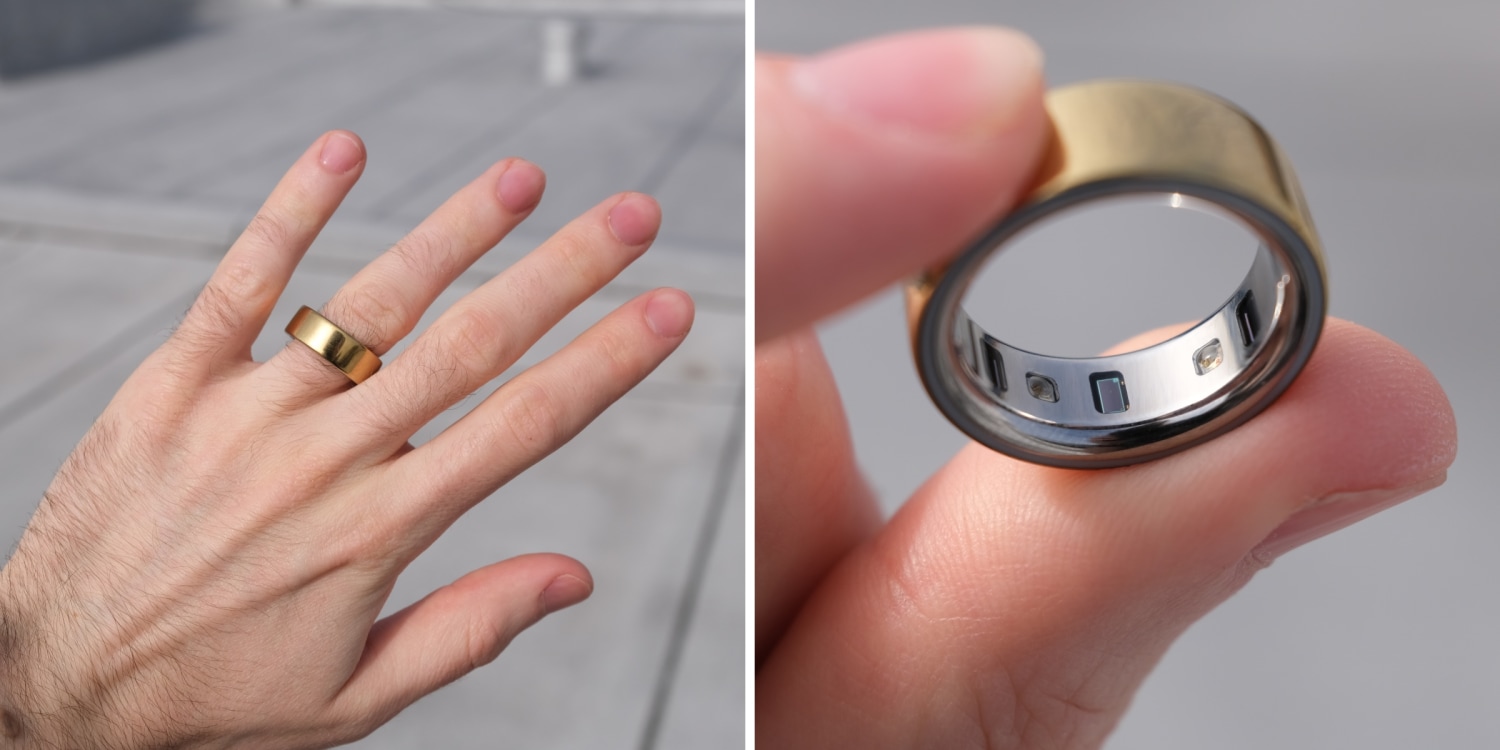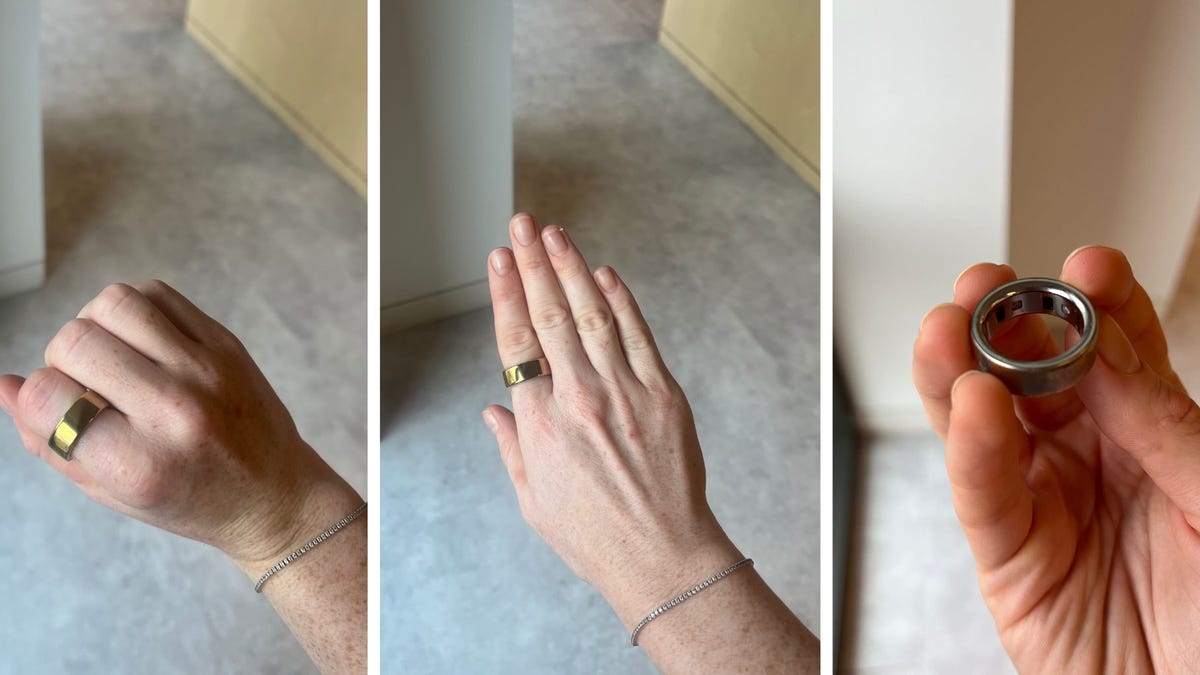How My Oura Ring Helps Me Live More Mindfully
It’s not just a fitness tracker—it’s a mindfulness coach I wear on my finger.
If you’ve ever tried to be more mindful—really tuned in to how your body feels, how you’re sleeping, how your habits affect your stress levels—you probably know how tricky it is to stay consistent.
Sure, we all have good intentions: meditate more, sleep better, move daily, drink water. But life is busy, and mindfulness often ends up at the bottom of the to-do list.
That’s where the Oura Ring comes in. At first glance, it might just look like a sleek, minimal ring. But what it really is? A surprisingly powerful mindfulness tool.
Since I started using the Oura Ring, it’s become my personal coach—quietly tracking, nudging, and helping me create space in my day to check in with myself. And honestly? It’s changed the way I show up in my life.
Here’s how this little ring has helped me slow down, stay grounded, and live more mindfully—without overwhelming me with data or distractions. click here

💡 What Is the Oura Ring, Exactly?
Let’s start with the basics. The Oura Ring is a smart ring designed to track key health metrics 24/7. It uses sensors to monitor:
- Heart rate
- Heart rate variability (HRV)
- Body temperature
- Breathing rate
- Sleep quality
- Activity levels
- Recovery status
- Stress patterns
All of this data syncs with the Oura app on your phone, giving you clear, digestible insights into your health and habits. But what really sets it apart—at least for me—is how it helps guide mindful living, not just fitness tracking.
🧘 How the Oura Ring Supports My Mindfulness Practice

Mindfulness isn’t just about meditation. It’s about being aware—of your body, your emotions, your energy, and your choices. And the Oura Ring has been a surprisingly helpful companion on that journey.
Here’s how:
1. It Shows Me When I Need to Slow Down
Before using Oura, I had a habit of pushing through exhaustion. I’d ignore fatigue, keep working late, or cram in workouts even when my body was clearly saying “no thanks.”
Now, thanks to Oura’s Readiness Score, I get a daily snapshot of how recovered (or not) I actually am. It factors in things like HRV, body temperature trends, and sleep quality.
If my score is low, I know it’s time to go easy—stretch instead of run, cancel unnecessary plans, or just take more breaks.
It’s like having a gentle voice reminding me, “Hey, you don’t need to hustle every day.”
2. It Helps Me Understand My Sleep—Without Guesswork
We’ve all had nights where we think we slept okay, only to wake up feeling wrecked. Or the opposite—we’re convinced we barely slept but somehow feel great.
Oura’s Sleep Score clears up the mystery. It tracks:
- How long you were actually asleep
- How much deep, light, and REM sleep you got
- How many times you woke up
- How late-night habits (like wine or screen time) impacted your rest
This has helped me spot patterns—like how even 10 minutes of breathwork before bed dramatically improves my deep sleep. And when I sleep better, I’m way more present during the day.
3. It Nudges Me to Move—Gently
Let’s be real: some fitness trackers can feel a little aggressive. “Get your steps in!” “Stand up right now!” “You’re behind on your goals!”
Oura is different. Its Activity Score is based on recovery, not just output. So if I’ve had a low-readiness day, it might encourage light movement or rest instead of pushing me to hit an arbitrary step goal.
This makes me feel more connected to my body and less like I’m constantly “failing” at some invisible standard.
4. It Tracks My Heart Rate During Meditation

One of my favorite features? Oura’s “Moment” tool, which lets you log and measure things like meditation, breathing exercises, or just quiet time.
When I take a few minutes to breathe or sit in silence, Oura records my heart rate and HRV in real-time. I can see how quickly my body calms down—which is super encouraging.
It’s helped me build a regular meditation habit, not by forcing it, but by showing me that even two minutes of stillness has a real, measurable impact.
5. It Keeps Me Honest—With Compassion
Mindfulness also means noticing when you’re not doing so well. I’ve had weeks where my sleep was off, stress was high, and movement was nonexistent. Oura doesn’t judge—but it does reflect the truth back at me.
And instead of spiraling into guilt, I now use that data as a cue to realign. Drink more water. Go to bed earlier. Do five minutes of stretching. Breathe.
Oura helps me course-correct gently, which is way more sustainable than perfectionism.
📱 How I Use the Oura App Mindfully
The app is designed beautifully—it’s clean, intuitive, and not overwhelming. Here’s how I use it in a mindful, non-obsessive way:
- Morning Check-In: I glance at my readiness and sleep scores, then decide how to approach my day.
- Midday Pause: I’ll often do a “Moment” session around lunchtime—a 5-minute breathwork break or gratitude reflection.
- Evening Wind-Down: I review my activity and sleep insights to make any small changes for the next day (like ditching that late coffee!).
Oura’s tone is gentle, not pushy. It feels like a friend offering support—not a drill sergeant barking commands.
🔁 Oura Has Helped Me Create Mindful Habits Without the Pressure

What I love most about the Oura Ring is that it’s helped me:
- Sleep with more intention
- Move in a way that supports my energy
- Meditate consistently
- Check in with myself emotionally
- Recover without guilt
- Be more present overall
It’s not about chasing metrics. It’s about using data as a doorway into deeper awareness—which is the whole point of mindfulness in the first place.
🙋♀️ FAQs: Living Mindfully with the Oura Ring
❓ Is the Oura Ring only for fitness tracking?
Not at all. While it does track activity, Oura’s core strength is in monitoring sleep, recovery, and stress—making it an ideal tool for mindfulness and holistic wellness.
❓ Can it help with anxiety or stress?
Yes. By showing how your body responds to things like rest, breathwork, or even your bedtime routine, Oura helps you learn what calms your nervous system—and encourages regular practice.
❓ Do I have to be tech-savvy to use it?
Nope! The app is super user-friendly and designed for people who aren’t deep into biohacking. You get the insights you need, without the overwhelm.
❓ Does it replace meditation apps or therapy?
Not exactly. Think of it as a supportive companion. It can enhance your meditation practice or therapy sessions, but it doesn’t replace them. It’s a helpful layer of feedback.
❓ Can mindfulness really be tracked?
To an extent, yes. Oura doesn’t track your thoughts—but it shows how your body responds to rest, presence, and breath. And that kind of feedback is incredibly motivating for staying mindful.
🌿 Final Thoughts: The Power of Gentle Awareness
Mindfulness doesn’t have to mean hour-long meditations or silent retreats. Sometimes it’s just noticing when you’re tired. Choosing to slow down. Taking a few deep breaths before reacting.
The Oura Ring has helped me do that. Not by yelling at me or flashing alerts—but by gently guiding me back to awareness, again and again.
In a world full of noise, pressure, and performance, that kind of gentle feedback is powerful.
So if you’re looking for a tool that helps you tune in instead of check out, the Oura Ring might just be what you need. Not just for fitness, but for living in alignment—with your body, your energy, and your intentions.
Because mindfulness isn’t a destination—it’s a way of moving through the world. And sometimes, all it takes to stay on track… is a little ring on your finger.
